
The gallery contains a collection of photographs published in issues of the SAMUDRA Report and the Yemaya Newsletter, as also other ICSF publications, workshops and meetings over the years. Also to be found are more general images of fishing and fishworkers in action across the world. There are about 10,000 photos from 64 countries. The photo database is searchable by caption, country and photographer. All images are free for download, though users are requested to credit the photos to ICSF and the respective photographer.
Loading...
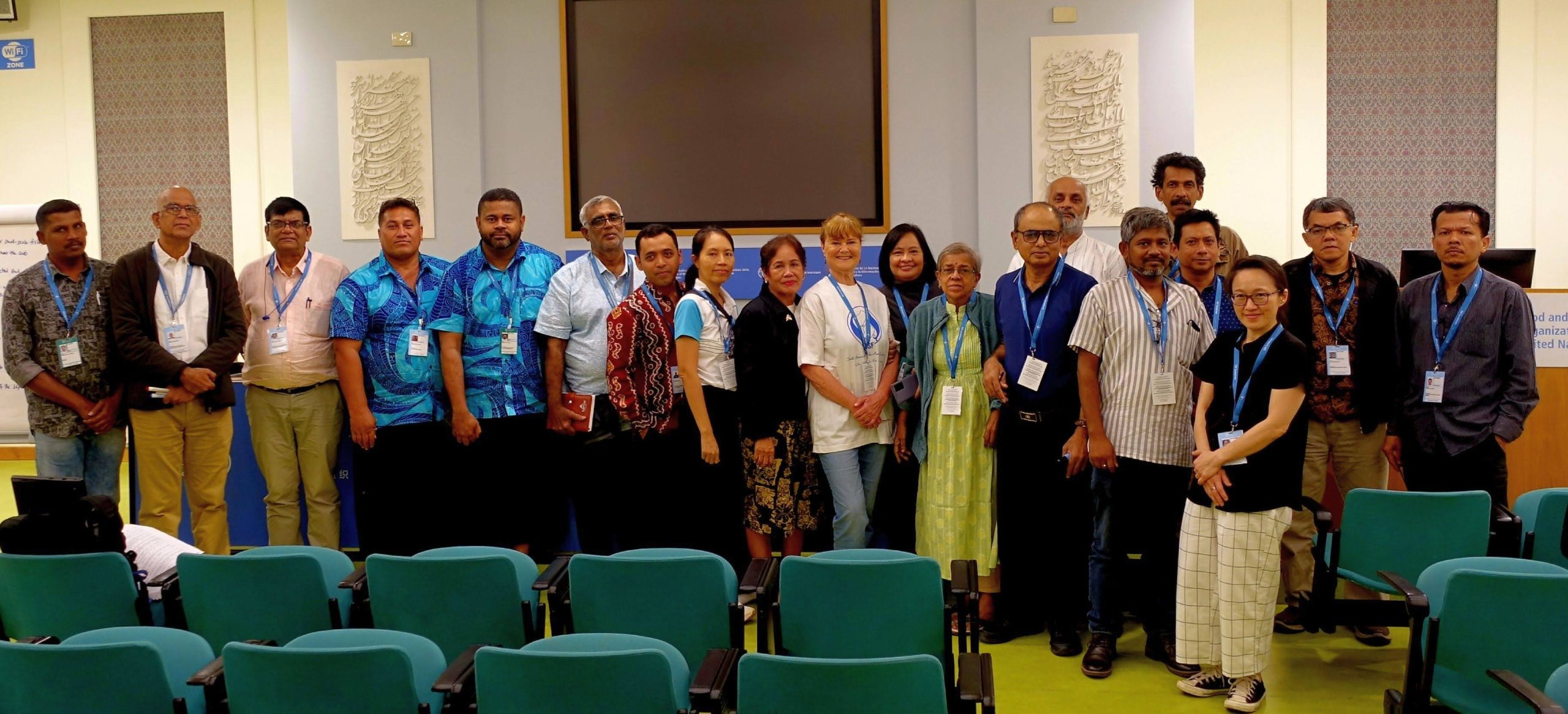
2nd Small-Scale Fisheries Summit, 5-7 July 2024, FAO Headquarters, Red Room, Rome, Italy - Day 1
Photo Credit: Cornelie Quist/ICSF
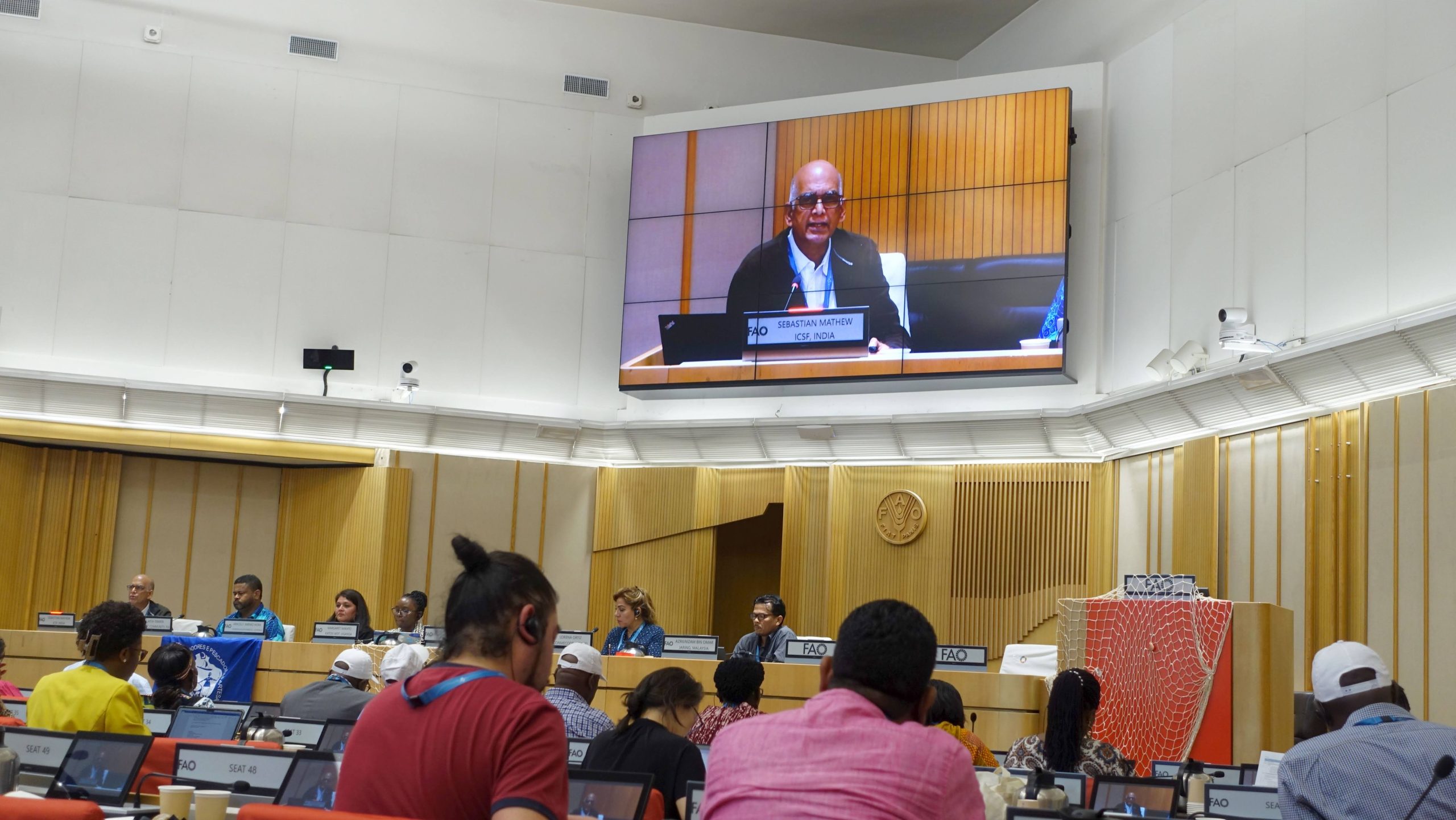
2nd Small-Scale Fisheries Summit, 5-7 July 2024, FAO Headquarters, Red Room, Rome, Italy - Day 1
Presentation by Sebastian Mathew, ICSF
Photo Credit: Cornelie Quist/ICSF
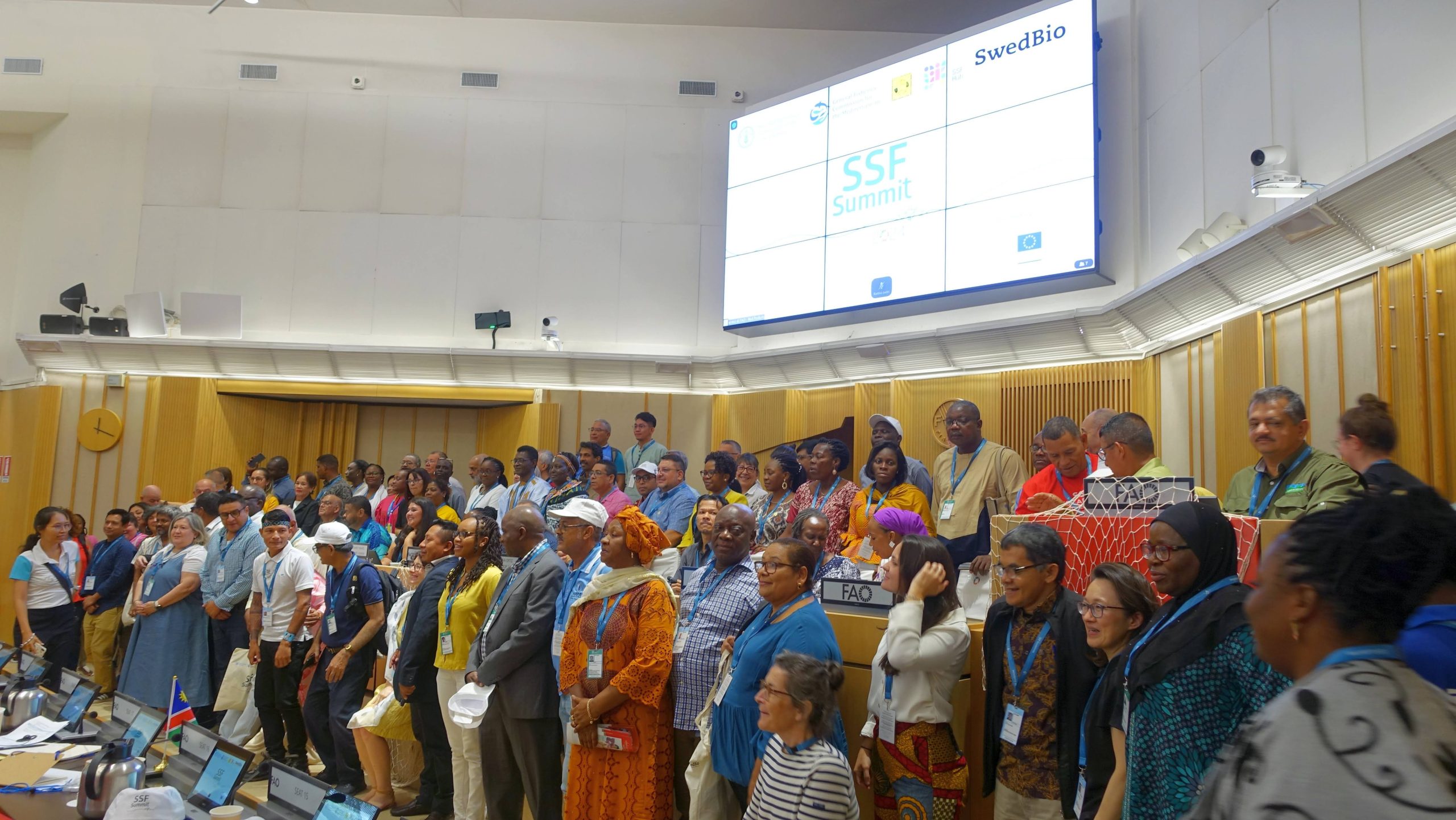
2nd Small-Scale Fisheries Summit, 5-7 July 2024, FAO Headquarters, Red Room, Rome, Italy - Day 1
Photo Credit: Cornelie Quist/ICSF
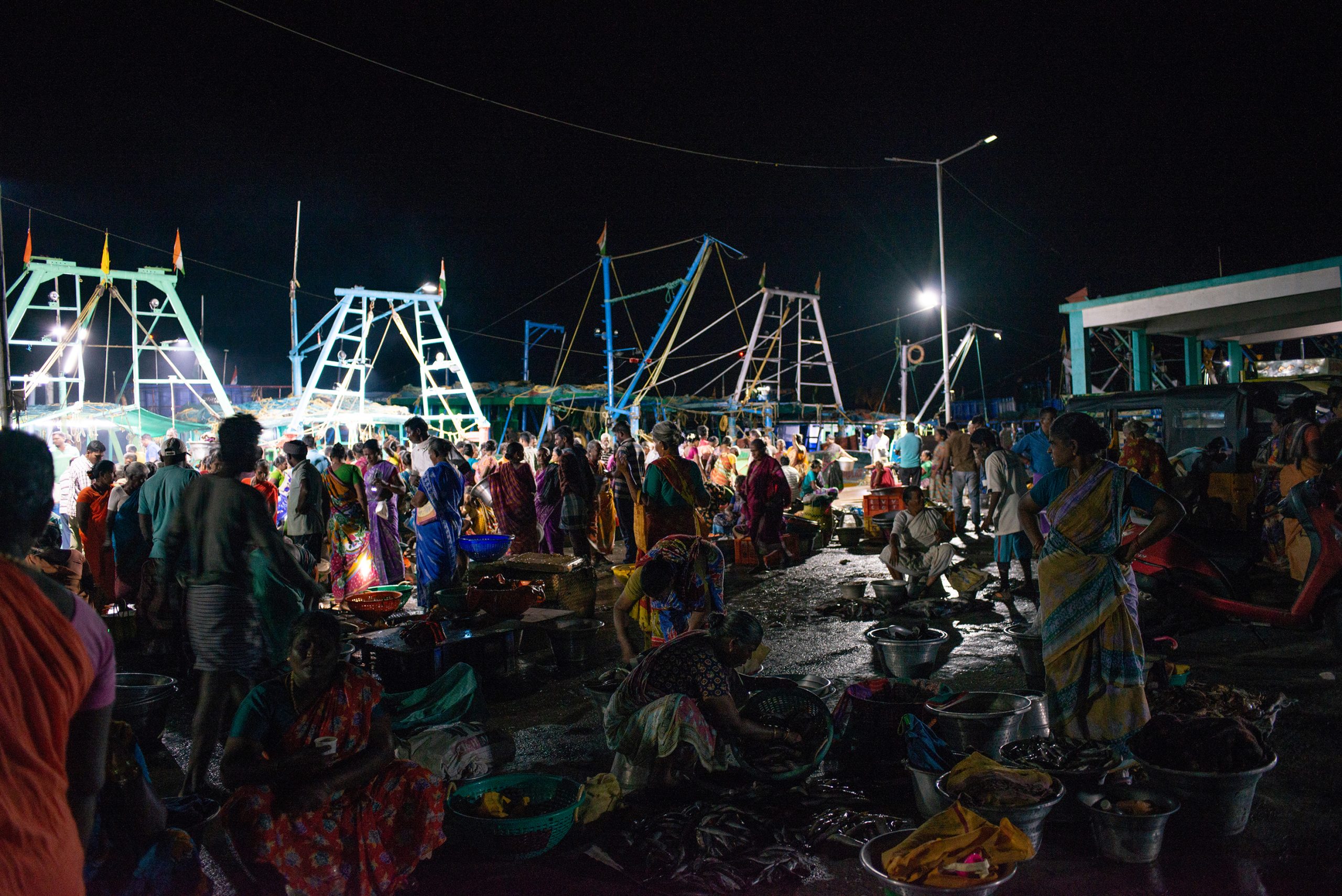
At the break of dawn, fisherwomen at the harbour. The Chennai fishers didn’t allow the migrants to register their boats, or join the fisher association, made them pay penalties for fishing in their waters, and engaged in several small forms of everyday harassment.
Photo credit: M. Palani Kumar
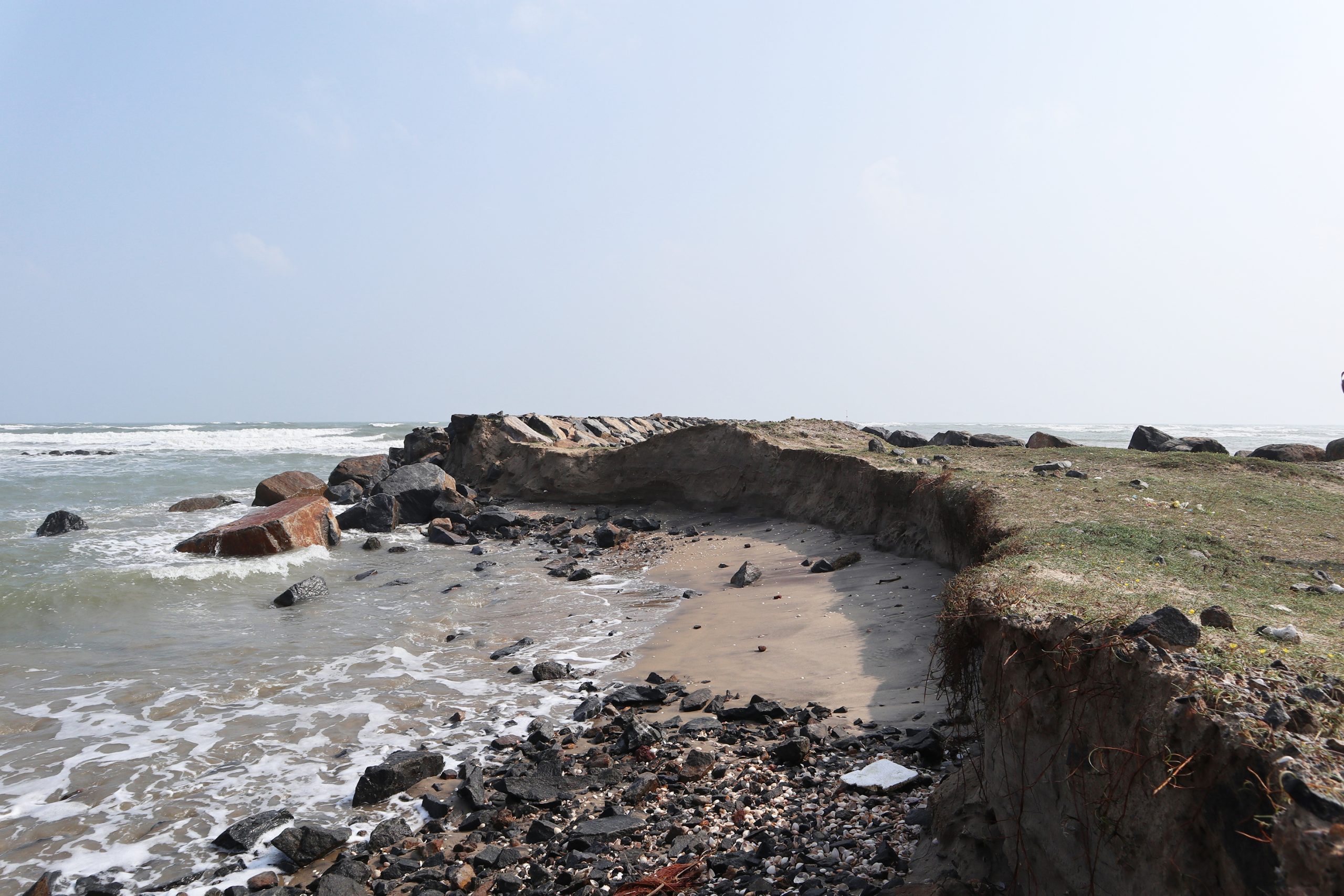
Hard to land at the eroded beach. A range of factors from coastal erosion and natural hazards to the lack of infrastructure and poor marketing facilities in their village, have made the local fishermen look for opportunities elsewhere.
Photo credit: D. Balasubramanian
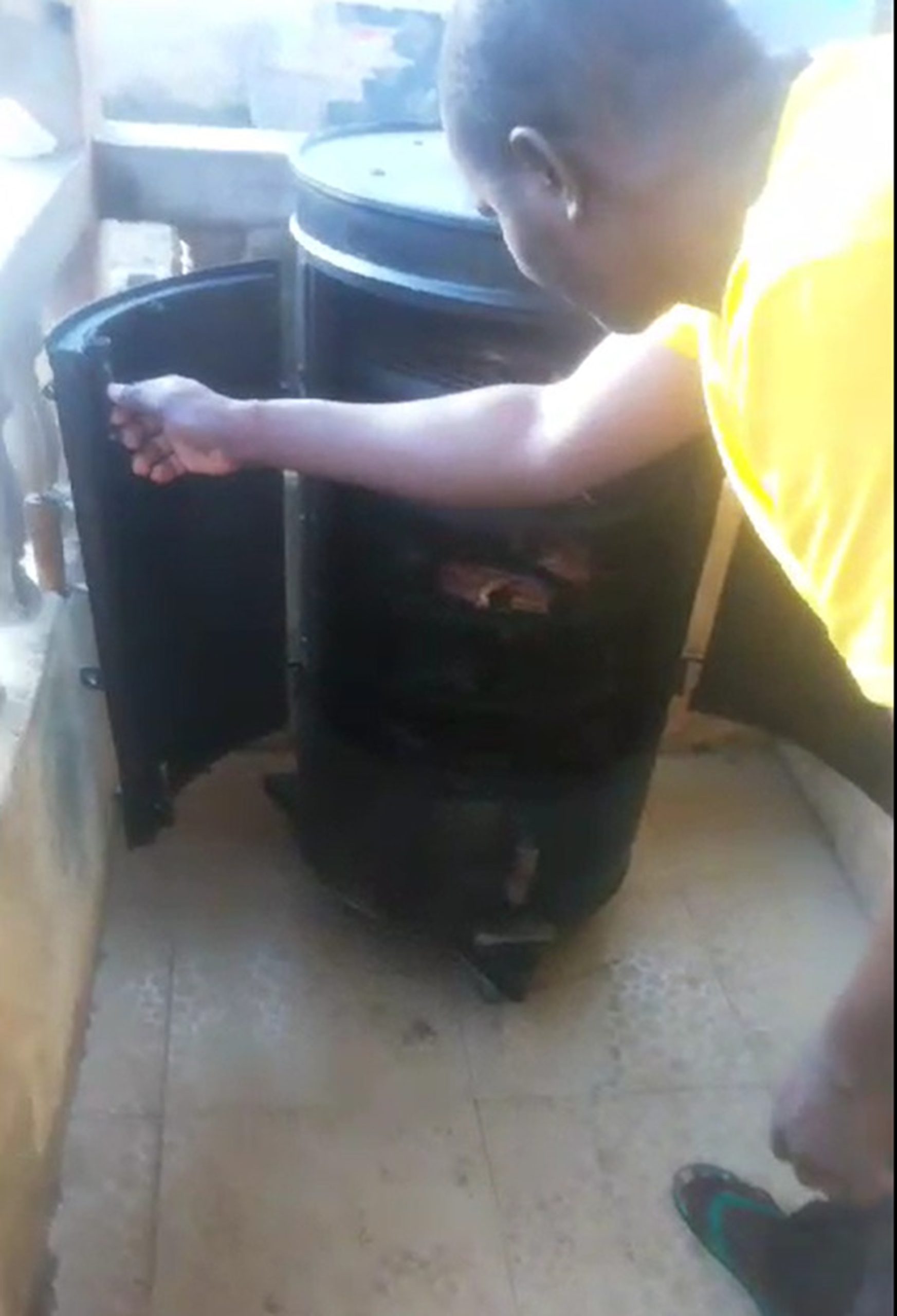
A male fish processor. Operable by a single person alone, the oven does not require special skills or technical experience to load the raw fish and offload the smoked product.
Photo credit: Owolabi Odulaja
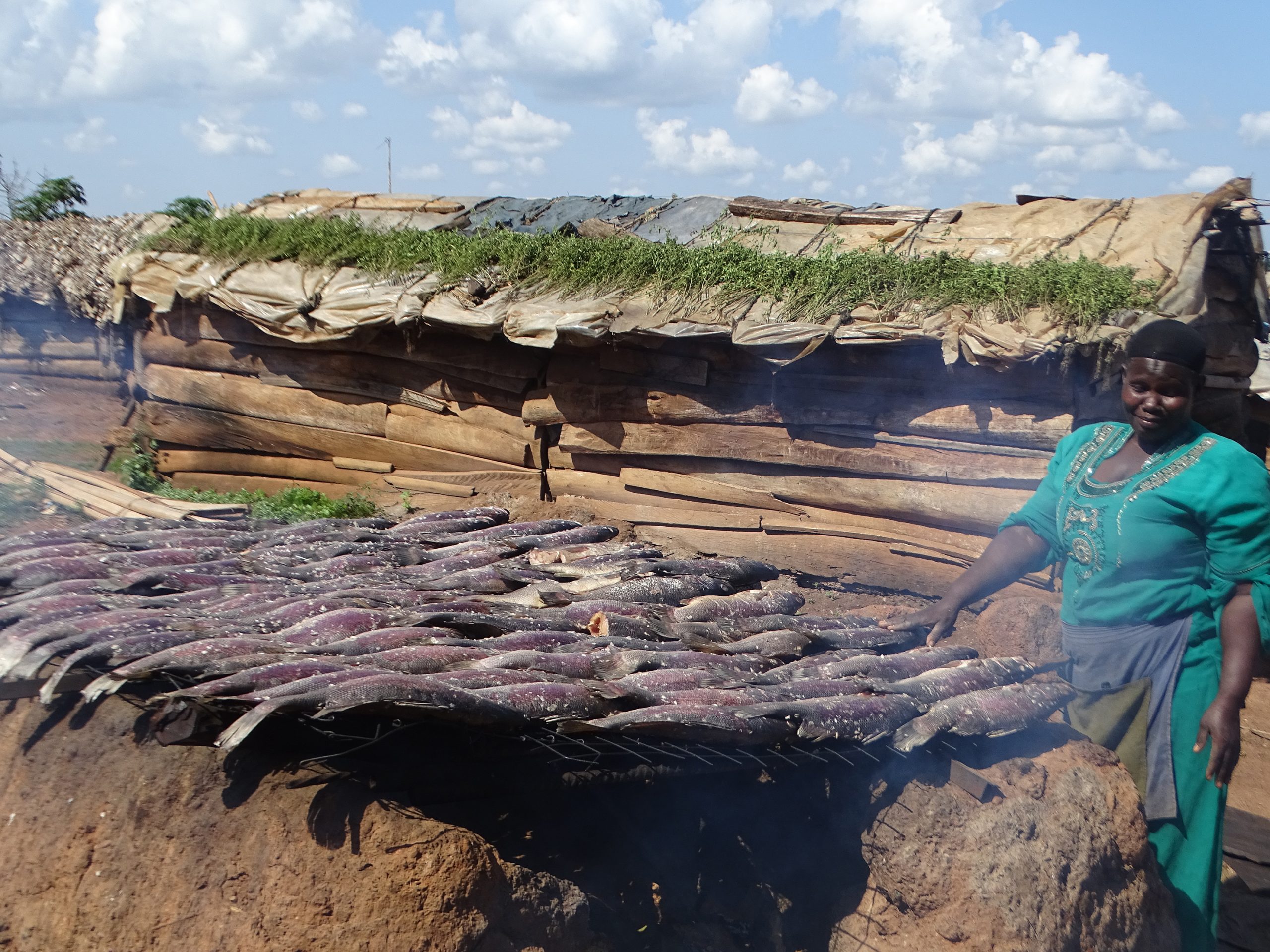
The fumes produced by the open fire kiln are impacting the fish processor’s eyes, causing discomfort and frequently leading her to shut her eyes during the process. One of the main hazards associated with traditional smoking methods is the risk of cancer due to Polycyclic Aromatic Hydrocarbons (PAHs).
Photo credit: Katosi Women Development Trust
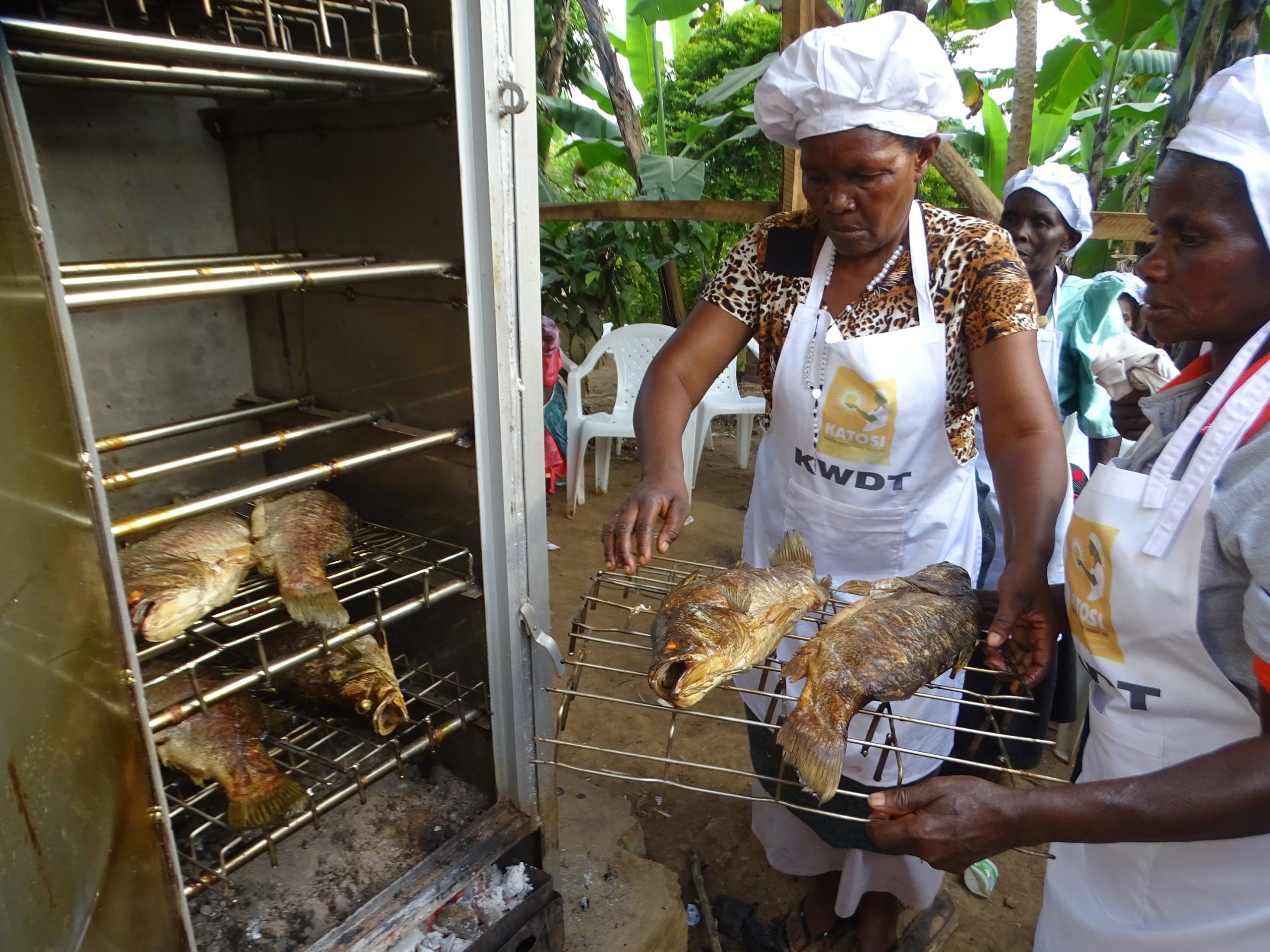
A female fish processor from Bugoye women’s group using NARO PAH-Safe fish smoking kiln. The NARO PAH Safe Fish Smoking Kiln reduces smoking time, thus freeing women to attend to other productive roles.
Photo credit: Katosi Women Development Trust
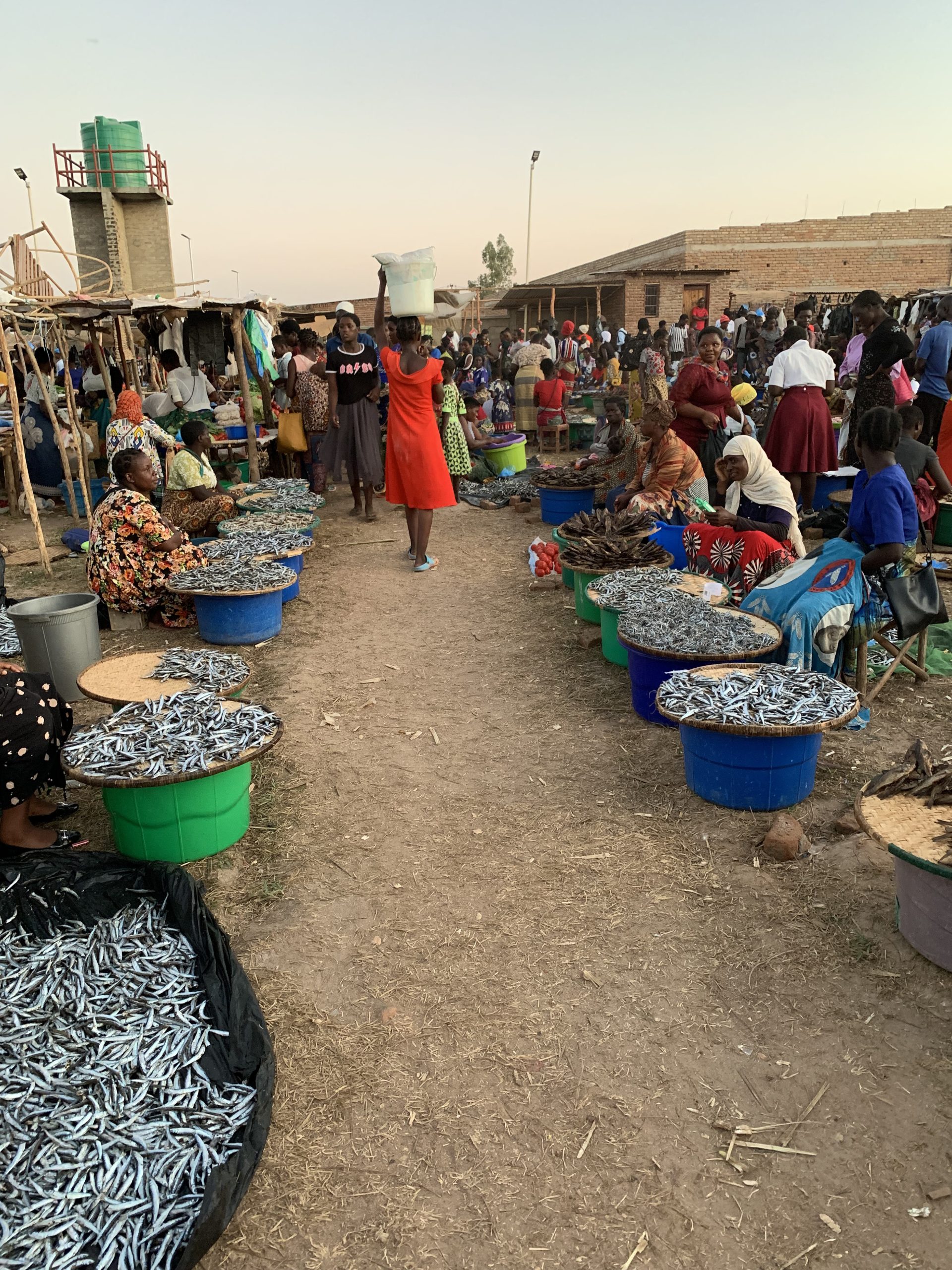
Women fish traders at Nkhotakota Market, Malawi. Equitable access to resources, including financial services and infrastructure, is necessary to facilitate equitable livelihood outcomes among genders.
Photo credit: The Research Team
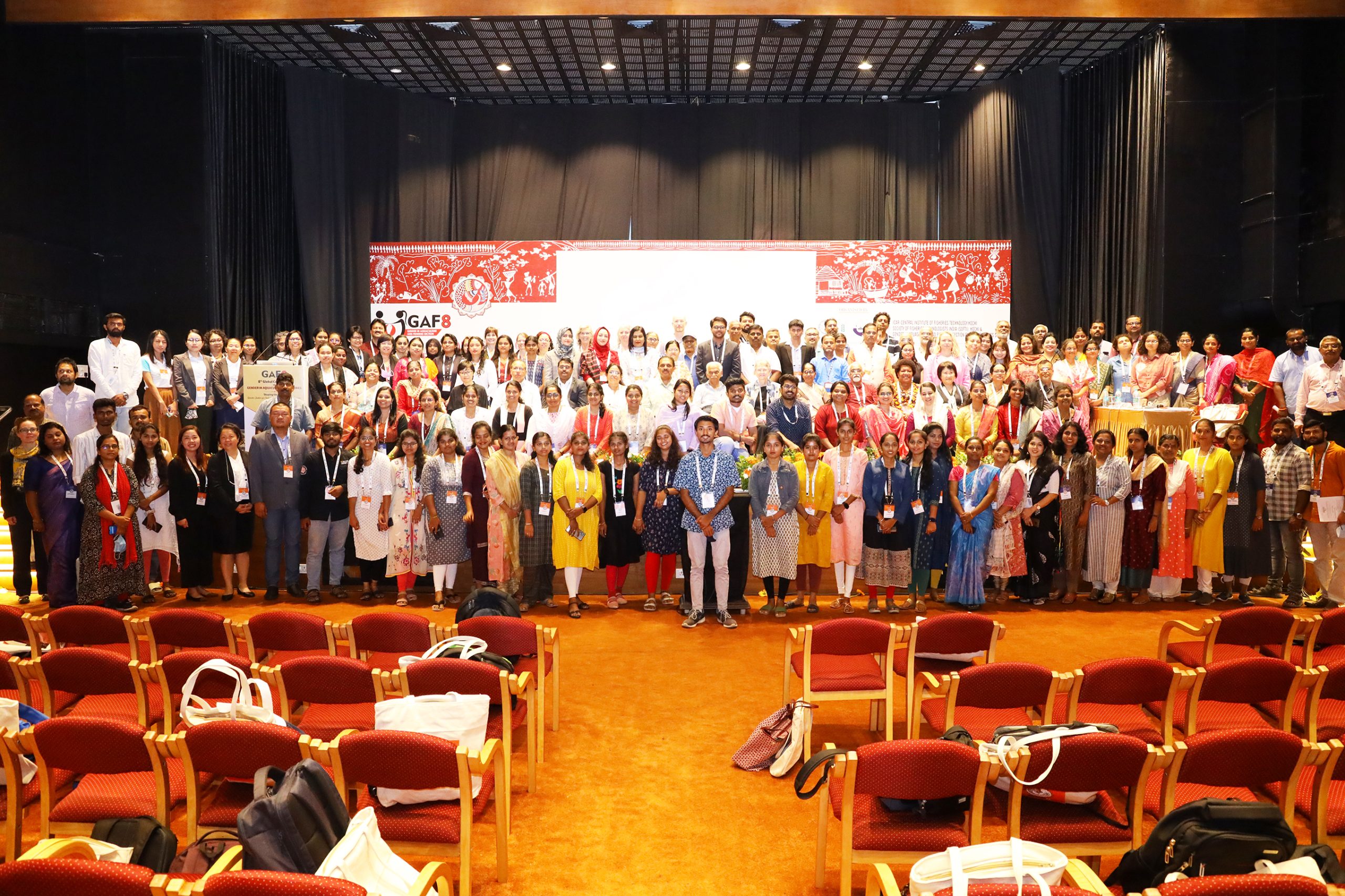
A group photo. The discussions during GAF8 led to common ground, such as the need for new approaches to document and analyse gender issues in aquaculture and fisheries, including human rights, intersectionality, and transformative, participatory, and gendered value chain approaches.
Photo credit: ICSF
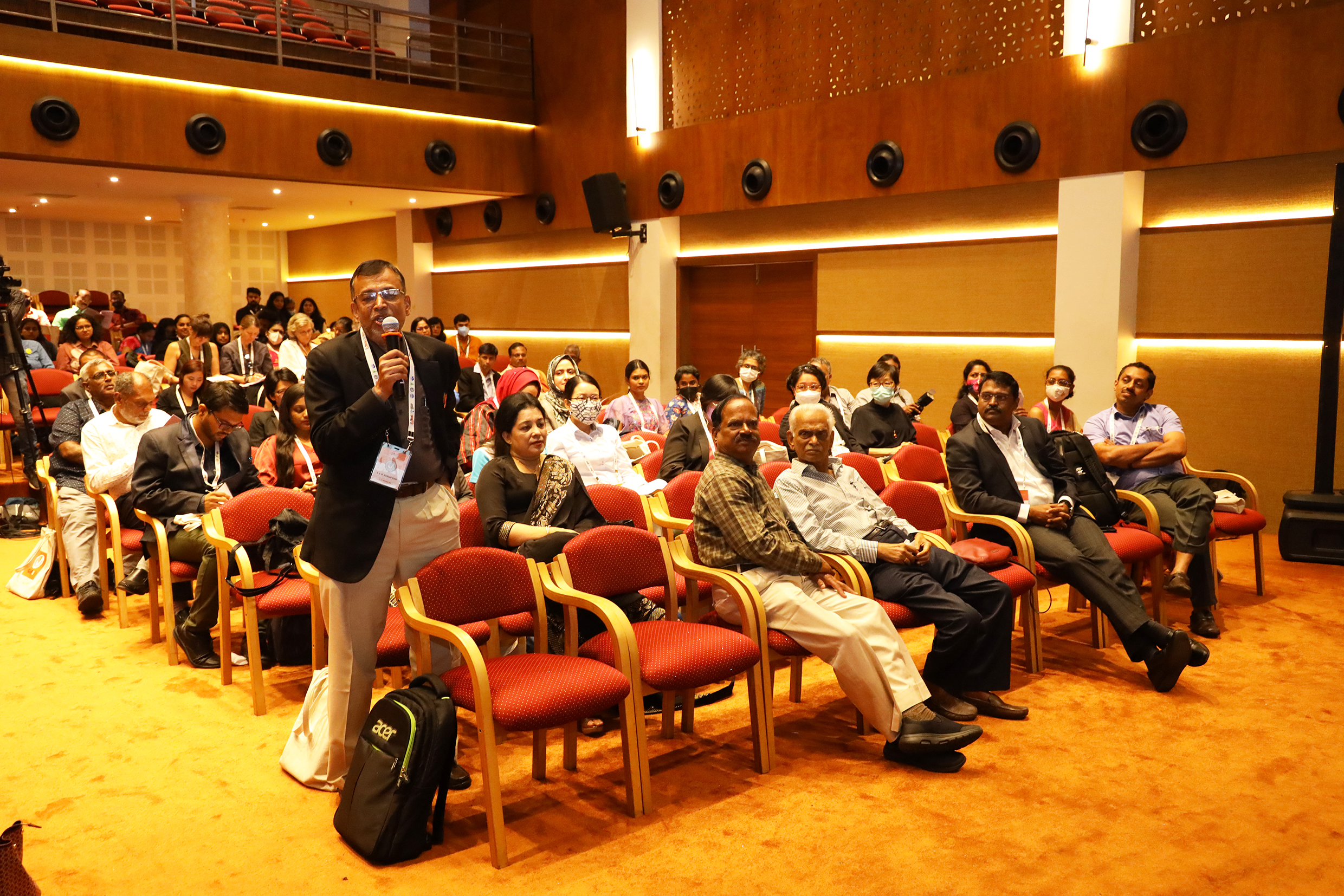
A panel discussion. The six thematic sessions, ten special sessions on projects, initiatives, narratives and stories from different parts of the world were presented in panel discussions.
Photo credit: ICSF